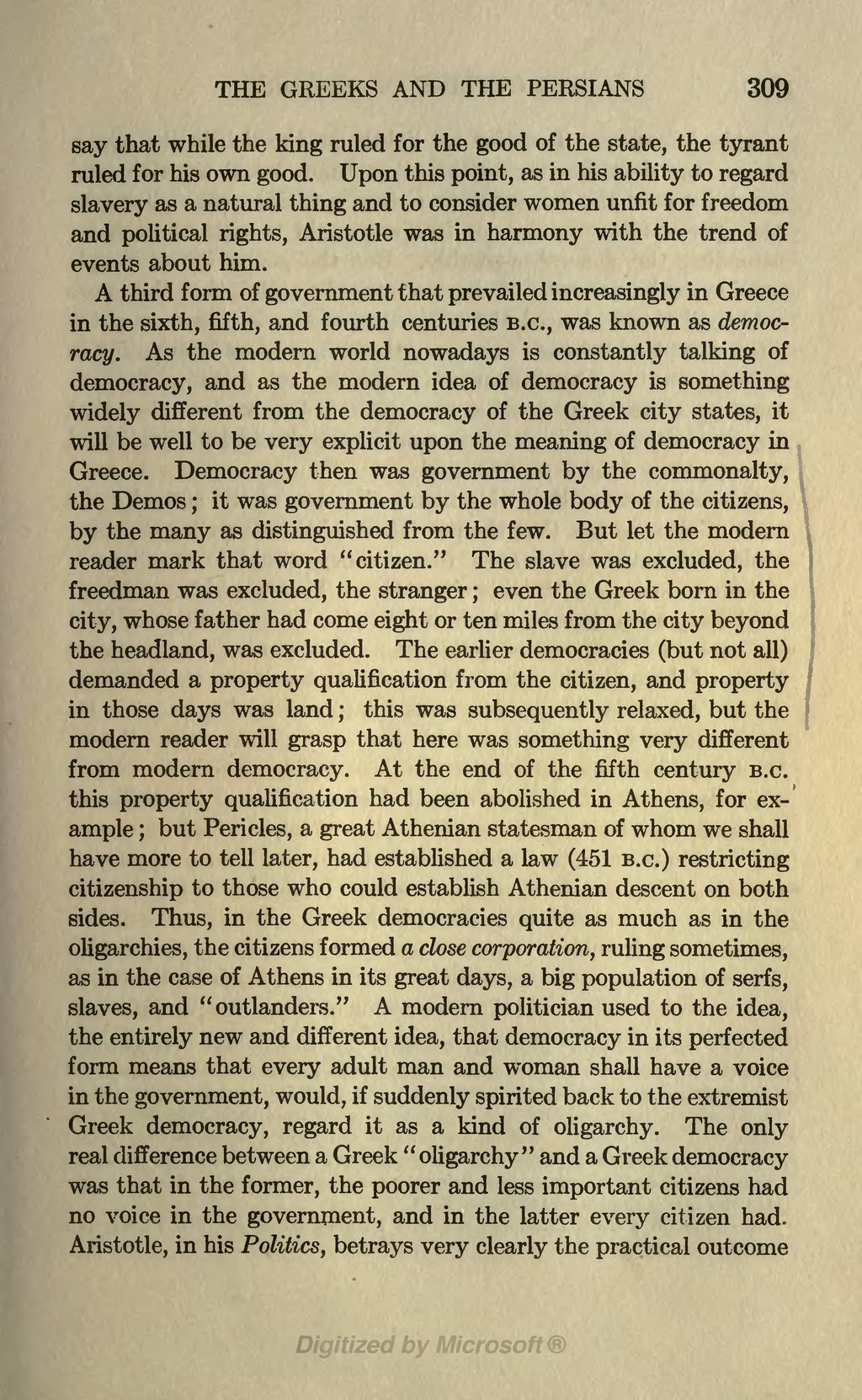say that while the king ruled for the good of the state, the tyrant ruled for his own good. Upon this point, as in his ability to regard slavery as a natural thing and to consider women unfit for freedom and political rights, Aristotle was in harmony with the trend of events about him.
A third form of government that prevailed increasingly in Greece in the sixth, fifth, and fourth centuries B.C., was known as democracy. As the modern world nowadays is constantly talking of democracy, and as the modern idea of democracy is something widely different from the democracy of the Greek city states, it will be well to be very explicit upon the meaning of democracy in Greece. Democracy then was government by the commonalty, the Demos; it was government by the whole body of the citizens, by the many as distinguished from the few. But let the modern reader mark that word "citizen." The slave was excluded, the freedman was excluded, the stranger; even the Greek born in the city, whose father had come eight or ten miles from the city beyond the headland, was excluded. The earlier democracies (but not all) demanded a property qualification from the citizen, and property in those days was land; this was subsequently relaxed, but the modern reader will grasp that here was something very different from modern democracy. At the end of the fifth century B.C. this property qualification had been abolished in Athens, for example; but Pericles, a great Athenian statesman of whom we shall have more to tell later, had established a law (451 B.C.) restricting citizenship to those who could establish Athenian descent on both sides. Thus, in the Greek democracies quite as much as in the oligarchies, the citizens formed a close corporation, ruling sometimes, as in the case of Athens in its great days, a big population of serfs, slaves, and "outlanders." A modern politician used to the idea, the entirely new and different idea, that democracy in its perfected form means that every adult man and woman shall have a voice in the government, would, if suddenly spirited back to the extremist Greek democracy, regard it as a kind of oligarchy. The only real difference between a Greek "oligarchy" and a Greek democracy was that in the former, the poorer and less important citizens had no voice in the government, and in the latter every citizen had. Aristotle, in his Politics, betrays very clearly the practical outcome
